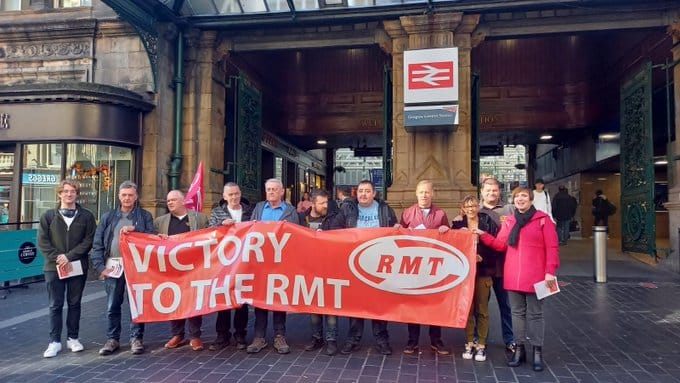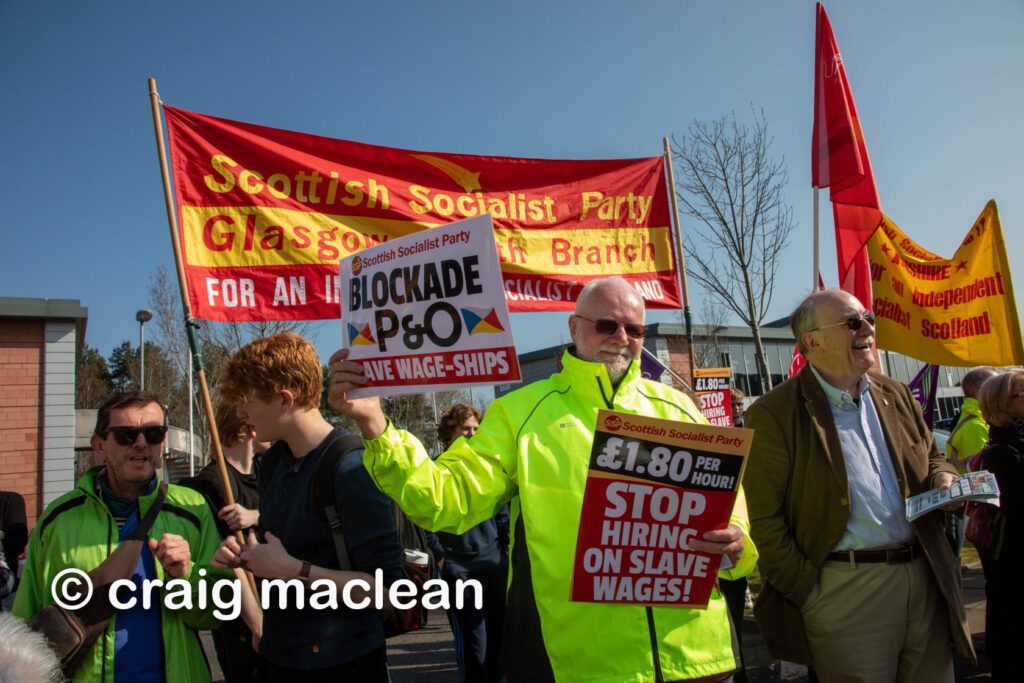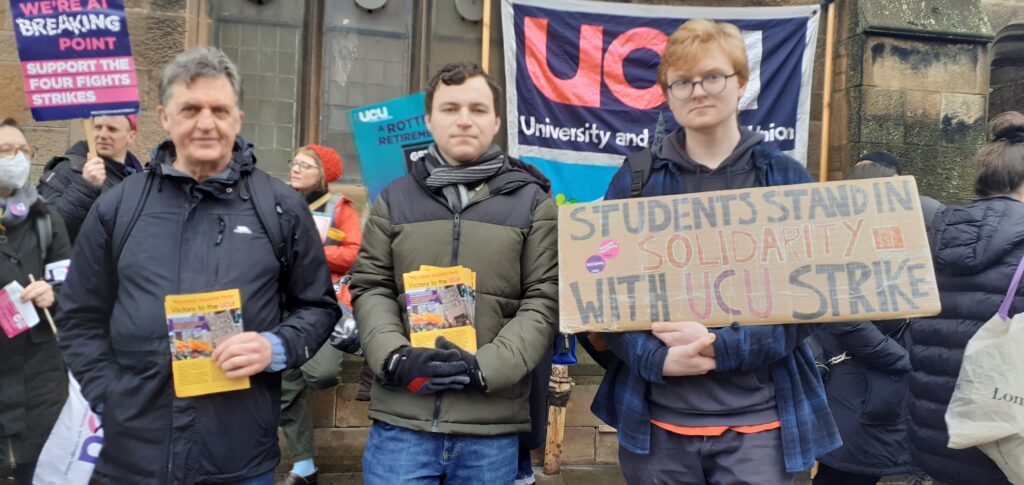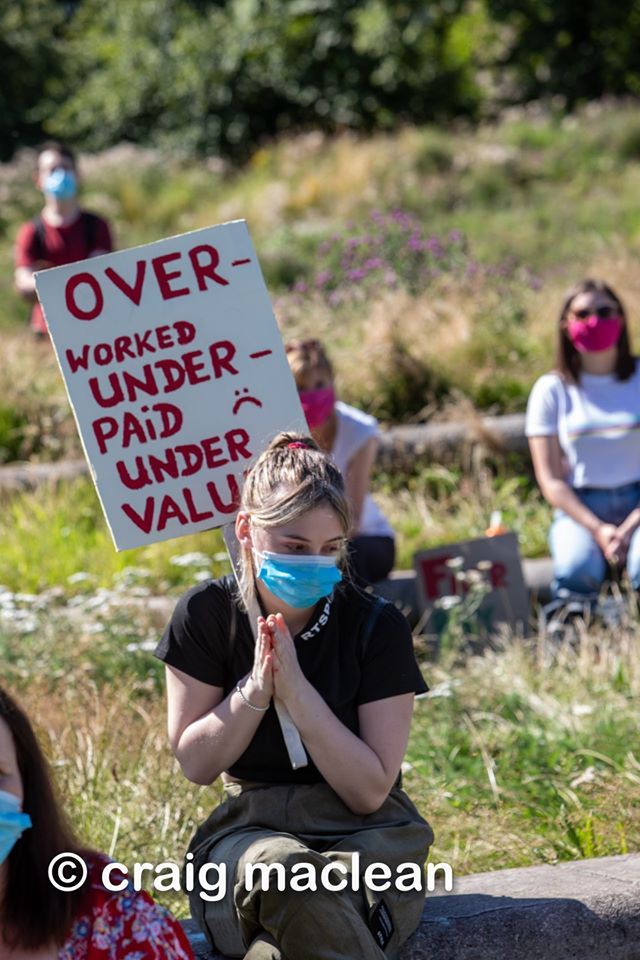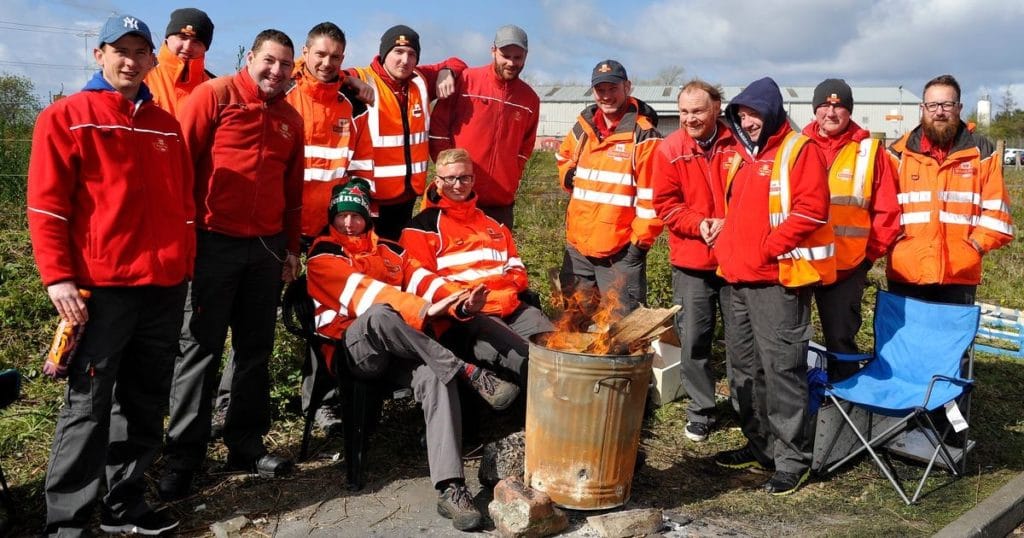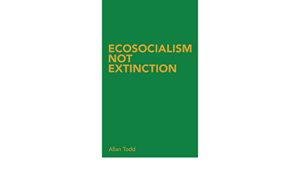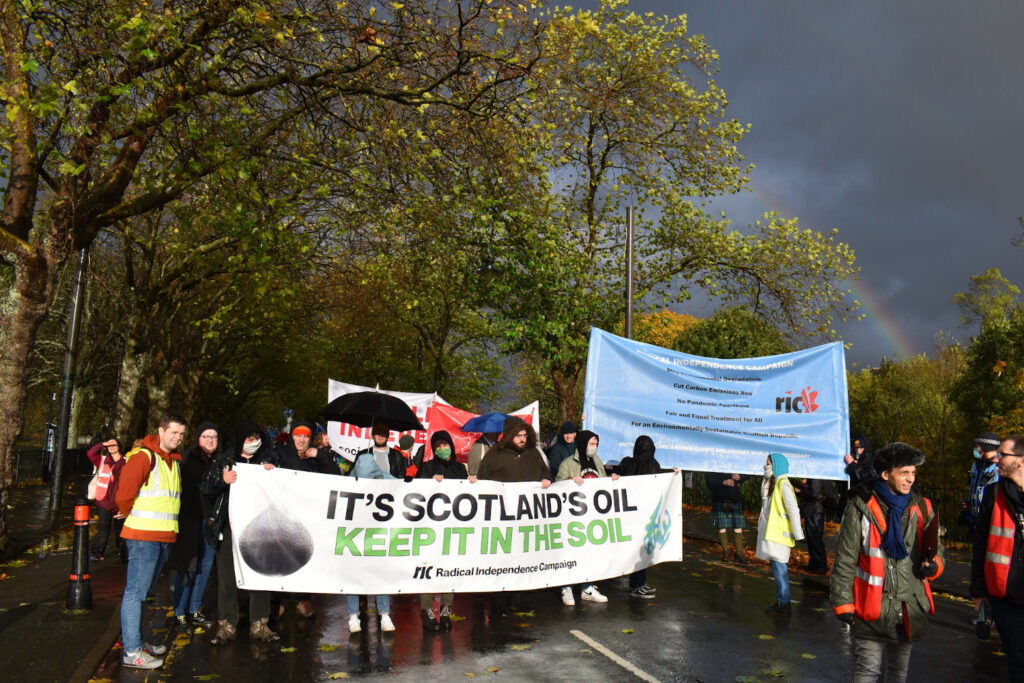Scottish nurses to strike for fair pay and the future of the NHS
Nursing workers across the whole of Scotland, writes Connor Beaton at Heckle, are set to join postal workers, teachers, railway workers, university and college workers and others next year [2023] in striking for increased pay — a historic move which reveals the extent of popular discontent over wage cuts and austerity imposed from above. With thousands of unfilled vacancies for nursing roles, the looming strike also forms a front in the struggle to defend the free, universal provision of quality healthcare in Scotland in the long-term.
Against the backdrop of consumer price inflation in the UK reaching 11% in November and being set to remain at historically high levels for at least months to come, the Scottish government has offered NHS workers a one-year deal providing for pay increases ranging from 11.32% for the lowest-paid workers to 2% for the highest-paid workers. The average pay increase on offer is 7.5%, translating to a real-terms pay cut of 3.5% for the average NHS worker in Scotland.
“When you take a decade of real-terms pay cuts and then you add such a significant one at a time when there’s a cost of living crisis in the country — people are really worried about their energy bills, especially with Scottish weather and the recent cold snap that we’ve had, it’s really prominent in people’s minds — and I think there’s been a perfect storm really, between that and the pandemic,” Siobhan Aston, a rehabilitation nurse and grassroots activist with NHS Workers Say NO, tells Heckle. “I think that’s why Scottish workers have decided no, enough is enough.”
Aston, who qualified as a nurse in 2014, is a rank-and-file member of the Royal College of Nursing (RCN), the largest nursing union which represents over 40,000 nurses, midwives and support workers in Scotland and has taken centre stage in this dispute. Members of unions Unite and Unison, who between them represent most NHS workers in Scotland including a minority of nursing workers, have already accepted the Scottish government’s latest pay offer. GMB and the Royal College of Midwives (RCM), which represent smaller numbers of NHS workers, have joined the RCN in rejecting it.
This month’s decision by RCN Scotland members to strike for a better pay deal, with a massive 82% in support, is historic for a number of reasons. An important one is that the planned strikes will mark the first time nursing workers have taken industrial action across all of Scotland’s 14 regional health boards, rather than taking part in localised action. It is also, however, a dramatic move for the RCN, which for decades rejected the prospect of strike action.

For most of its 106-year history, the RCN was not a trade union but a professional association aimed primarily at improving standards in nursing. In the 1970s — a tumultuous decade in which the NHS was rocked by a wave of strikes — the RCN registered as a trade union, but maintained in its constitution an outright ban on its members taking part in strike action and refused to affiliate to the Trades Union Congress (TUC) alongside the other unions representing NHS workers.
When the biggest strike in NHS history took place in 1982, with workers across the UK walking out for a 12% pay increase, RCN members joined mass demonstrations but stopped short of striking; a critical account from Dale Evans recalls how the “split between TUC-affiliated bodies and non-affiliated unions such as the RCN was to prove crucial in the conduct of the dispute, and its final resolution”. Though unions NUPE and COHSE (both now part of Unison) wanted to continue the dispute, it came to an end when the RCN accepted a government offer including pay rises and the establishment of a pay review board for nurses. Thatcher’s policy was that pay review boards were on offer only to workers who did not strike; the RCN’s stance was rewarded.

Since the professionalisation of nursing in the 19th century, generally credited to aristocratic social reformer Florence Nightingale, nursing work has been identified as “women’s work”, best suited to women because of their supposed natural inclination towards care and empathy. This diminishing label has been leveraged by patriarchal capitalism to undervalue and undercompensate nursing workers, who continue to be overwhelmingly women. Tory minister Nadine Dorries, herself a former nurse, last year invoked that vision of nursing as an extension of women’s natural instincts when she insisted that nurses did not require a significant post-pandemic pay increase because they “do their job because they love their job”.
This perception of nursing has also found expression in the trade union and socialist movements. Evans’ article argues that the 1982 dispute, the largest pay dispute during Thatcher’s premiership, has been written out of trade union history because most of the workers involved were women, who fit less comfortably into narrow, masculine visions of working class struggle. Socialist newspapers of the day derisively attributed the RCN’s no-strike policy to the “Florence Nightingale mentality” of its members. This was challenged by the likes of the feminist-influenced Radical Nurses Group (RNG) of the 1980s, whose members criticised their union branches as dominated by men and/or managers and reproducing the oppressive hierarchies of their workplaces.
Forty years later, the picture has changed dramatically. For starters, it is now the RCN — having abolished its no-strike rule in 1995 — whose members have refused to buckle under pressure and have diverged from the TUC-affiliated Unison and Unite unions in voting to strike. This has cut short a period of triumphalism from Scottish ministers after nurses walked out in England, Wales and the north of Ireland. Humza Yousaf, the Scottish health secretary, said in November that his “constructive engagement with [trade unions] is one of reasons why Scotland is only part of the UK where we are not seeing nurses go on strike today”. Only weeks later, he faced condemnation from the RCN for planning to impose a pay deal rejected by its members.
Siobhan Aston, despite having voted to strike, is still sympathetic to the position in which the Scottish government finds itself. “I do believe that they are more left-leaning [than the UK government] and are trying to accommodate us,” she tells us. “Their response to this has been that the money’s not there through the Barnett consequentials, and I do understand that argument. But realistically, we’re at an impasse. We can’t afford not to settle this and not to find a compromise.” The UK government “does need to allocate more funding to the devolved nations”, she concedes, while at the same time rejecting some of the more passionate defences of Scottish ministers from SNP supporters. Aston points out: “I’m pro-indy, but it’s very possible to be pro-independence but not agree with the government on absolutely everything. I think that’s widely misunderstood.”
“We’re at an impasse. We can’t afford not to settle this and not to find a compromise.”
That Unite and Unison members voted to accept the pay offer is particularly disappointing to Aston. “There’s division, frankly,” she admits. Though acknowledging that the other unions represent a higher proportion of workers on lower bands, for many of whom the pay offer was “close to inflation”, she notes the narrowness of the margin in some of the ballots. Just 57% of voters in Unison’s last ballot accepted the pay deal, with many of the union’s own members incensed at the outcome. “The word that I’m hearing is that a lot of people are leaving, registered staff are leaving, and moving to a trade union that they feel represents them better,” Aston says. “That’s not my personal opinion, that’s out there for people to see — it’s all over Facebook groups.”
Heckle spoke with Stevie, an NHS mental health worker in Clydebank who resigned from Unison after 18 years’ membership and joined the RCN. “I’ve been speaking to a lot of nursing colleagues over the last few weeks as pay negotiations continue with the Scottish government and I have to say that I’ve never known such unity of opinion and determination among them with regard to rejecting real-terms pay cuts and standing up for the NHS,” he says. “I know several long-term members of Unison who resigned in disgust at the union’s cheerleading for a real-terms pay cut. People support the RCN position of demanding fair pay and support for our NHS.”
Aston is confident that public opinion is firmly behind the nurses, paying tribute to the work of other unions, including the RMT and the CWU, in forcefully making the case for inflation-busting pay rises in recent months, including among NHS workers. The other driving factor, she believes, is the strength of public feeling around the NHS. “Staff feel — and I’ve been a patient too in the last year — that standards are declining,” she explains. “There’s not enough of us to do the job. That’s the reality.” There were over 6,300 nursing and midwifery vacancies in Scotland at the end of September, according to NHS Scotland figures, and the number is growing. “We need more people in order to do the work well, but the problem is people are leaving,” Aston says. “Realistically, if we don’t look at the wages, we’re never going to solve those staffing issues, those retention issues and those recruitment issues.”
Her work with NHS Workers Say NO, a grassroots organisation established at the height of the pandemic in summer 2020, has helped Aston to build a formidable online following which she has used to further the campaign for better pay and conditions for NHS workers. She has nearly 47,000 followers on Twitter and her TikTok videos about the pay dispute have collectively racked up tens of thousands of views.
Although new to the RCN, Aston is looking forward to getting more involved and joining her colleagues on the picket line. She has already visited striking nurses in Belfast as well as picket lines with other striking workers, and is effusive about the work of StrikeMap, a worker-led project helping people find out where and when pickets are taking place locally so they can show their support. “It’s really, really important because it’s tough going,” she says. “It’s tough going, campaigning, and it’s hard work. I’ve seen it from my colleagues across the UK setting up strike committees. When people go to their picket line, it really provides an important psychological boost to the people that are standing there.”
RCN Scotland has said it will announce its strike dates early in the new year. The RCM and GMB unions have indicated that they could follow suit if the Scottish government refuses to return to negotiations. In the spirit of working class solidarity and in defence of the NHS, the full strength of the trade union and socialist movements should be prepared to come out in their support.
Originally published on 30 December 2022 by Heckle, online publication of the Republican Socialist Platform – https://heckle.scot/2022/12/scottish-nurses-strike-for-fair-pay-and-the-future-of-the-nhs/. You can join RSP here: https://join.republicansocialists.scot/
